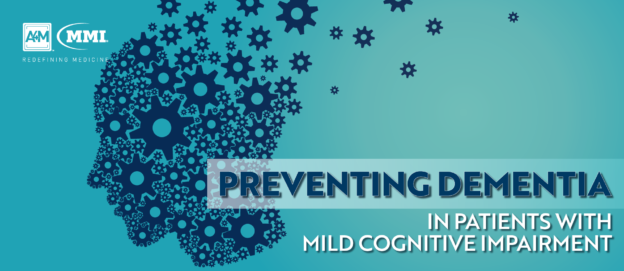According to data from the American Academy of Neurology (AAN), an estimated 6% of people worldwide suffer from mild cognitive impairment (MCI) in their 60s, and 37% are affected by age 85. Although patients with mild cognitive impairment have an increased risk of developing dementia, the condition does not always worsen and growing research aims to determine the underlying mechanisms linking the two. The progression from MCI, a slight but noticeable change in cognitive function, to dementia is not automatic; about 15% of MCI cases develop into dementia.
Depending on the root cause, MCI may only affect certain individuals temporarily. However, the risk of progression grows significantly if neurodegenerative disease is causing the MCI. Some patients remain in the MCI stage for many years irrespective of cause, while others develop full-scale dementia in the matter of a few years. While the details of disease progression remain under investigation, current medical knowledge implicates the need for dementia prevention strategies for patients with mild cognitive impairment.
Mild Cognitive Impairment: Causes, Symptoms and Risk Factors
MCI can cause changes in cognitive functioning that vary in severity but are often noticeable to patients and their loved ones without interfering with daily life. While some MCI patients revert to normal cognition without clinical intervention, it is important to seek medical help to determine whether cognitive changes are symptomatic of a disease, reversible, or normal for one’s age.
Common causes of MCI include degenerative brain diseases, such as Alzheimer’s disease, stroke, vascular disease, traumatic brain injury, medication, sleep deprivation, and other mental health problems.
The two types of mild cognitive impairment include amnestic MCI – which is associated with memory loss – and non-amnestic MCI, which affects other brain activity. Regardless of memory loss, non-amnestic MCI can manifest as language issues, attention deficit, and problems with spatial sense. Currently, it is not possible to determine underlying causes or outcomes of mild cognitive impairment based on symptom presentation.
Risk factors linked to MCI are similar to those for dementia and include family history of Alzheimer’s or other dementia, health conditions that increase the risk for cardiovascular disease, and advancing age.
Preventing Dementia in MCI Patients
When MCI is caused by a general health condition, such as sleep deprivation or depression, cognitive function can be significantly improved through treatment of the underlying cause. Irreversible mild cognitive impairment is much more challenging to treat. Currently, there are no FDA-approved medications on the market for MCI treatment nor do Alzheimer’s disease drugs have an effect on MCI patients. Although additional research is needed to identify prevention strategies and coping techniques with lasting effects, some studies suggest a combination of habits may be beneficial in helping slow down cognitive decline.
Data from a 2017 study of dementia prevention strategies indicates the efficacious effects of a multifactorial intervention program focused on regular exercise, healthy diet, vascular risk factors, and mental health. Additionally, a 2015 randomized controlled study called the FINGER trial found that the maintenance of these habits led to decreased cognitive decline over a two-year period. However, the participants of the study were at risk for Alzheimer’s disease and did not have mild cognitive impairment.
The AAN reports supporting evidence linking exercise to improved memory in MCI patients. Exercise benefits are numerous; not only can regular exercise ameliorate cardiovascular risk factors by improving heart and blood vessel health, but it can also offer necessary mental and social stimulation to sustain brain function.
Additionally, cognitive training – or computer-based exercises aimed at sharpening response times – may also improve thinking skills. However, further evidence is needed to determine its effects on slowing cognitive decline.
Patients with mild cognitive impairment should be evaluated every six months to determine progression of symptoms as well as their risk for dementia development. Incorporating and maintaining healthy habits such as regular physical activity and consuming a well-balanced diet may be the most promising prevention methods of cognitive decline to date. Meanwhile, forthcoming research may help to better predict MCI outcomes, determine the exact functioning of therapeutic interventions, and discover successful treatment modalities for cognitive decline.

